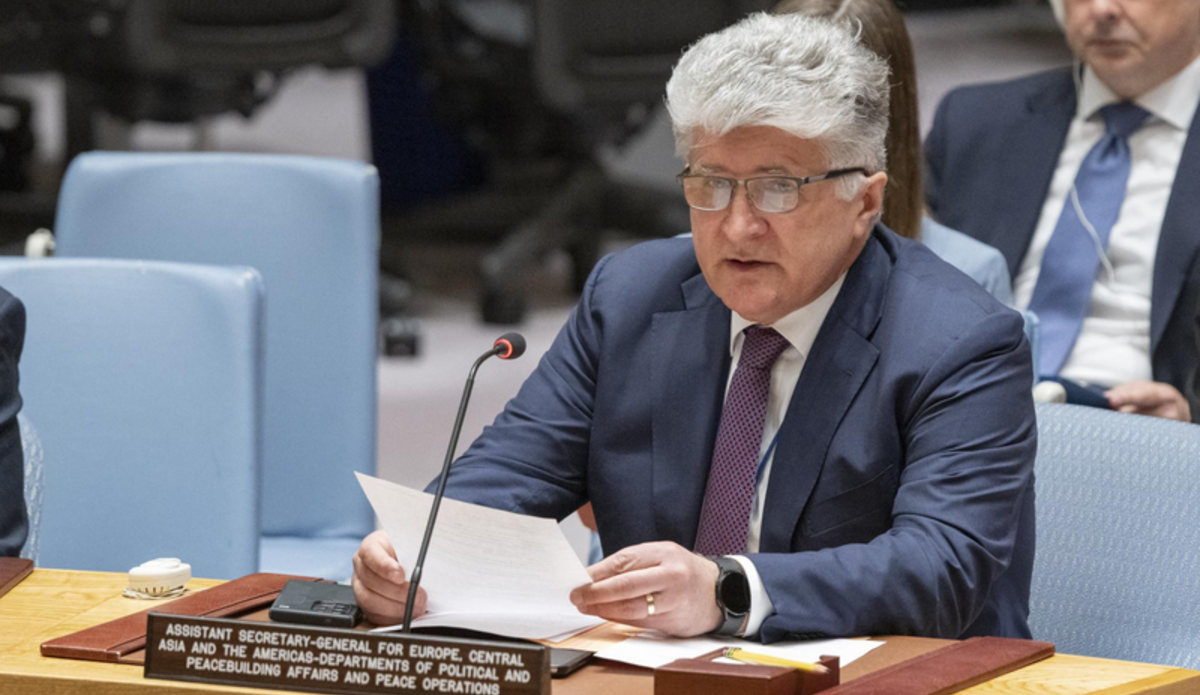ASSISTANT SECRETARY-GENERAL MIROSLAV JENČA’S
REMARKS TO THE SECURITY COUNCIL
New York, 26 April 2023
Madam President,
The destruction of the Nord Stream gas pipelines in September 2022 highlighted the vulnerability of critical commercial and energy infrastructure in the current regional and global context.
The incident has sparked widespread speculations that risk further fueling the already heightened tensions and mistrust among Member States.
The Council has convened in total seven times to discuss the issue.
I recall that our briefings on this topic are based solely on information that is publicly available. The United Nations does not have any additional details of the events and is not in a position to verify or confirm claims or reports made regarding the incident. I will therefore use this opportunity to recap what has been stated so far.
Between 26 and 29 September 2022, four leaks were reported in the Nord Stream undersea gas pipelines. These pipelines are located in international waters, within the Swedish and Danish economic zones in the Baltic Sea.
The first leak was reported on the Nord Stream 2 pipeline in the morning of 26 September 2022. Later that day, the second and third leaks were reported on the Nord Stream 1 pipeline. The fourth leak was reported on 29 September on the Nord Stream 2 pipeline.
While the pipelines were not in operation at the time of the incidents, they reportedly contained several hundred million cubic meters of natural gas.
In February 2023, the United Nations Environment Programme estimated the plausible range of total methane emissions leaked during the incident to be between 75,000 and 230,000 metric tons.
The full extent of the environmental impacts of the incident, including on marine and local wildlife, is yet to be grasped.
After the leaks were reported, the Danish, German and Swedish authorities announced the launch of separate national investigations. The concerned authorities provided updates on their respective investigations, including in a joint letter to the President of the Security Council dated 10 July 2023 [S/2023/517].
The letter indicated that, according to the investigations, the leaks were caused by the use of explosives. The authorities also reported having informed the Russian Federation about the progress of the investigations.
In a letter dated 25 August 2023 from the Permanent Representative of the Russian Federation to the United Nations, addressed to the Secretary-General and the President of the Security Council [S/2023/627], the Russian Federation expressed concerns about these national investigations and called for "comprehensive and objective proceedings".
In February this year, the Danish and the Swedish authorities informed about the closure of their respective investigations in joint letters from the Permanent Representatives of Denmark, Germany and Sweden to the United Nations, addressed to the President of the Security Council dated 7 and 26 February 2024 [S/2024/149 and S/2024/189].
We look forward to hearing about the findings and conclusions of the ongoing German investigation in due time.
In a letter from the Permanent Representative of the Russian Federation to the United Nations, dated 1 March 2024, addressed to the Secretary-General and the President of the Security Council [S/2024/230], the Russian Federation reiterated its concerns and that they see a need for an international commission to investigate the Nord Stream incidents further.
Madam President,
We reiterate that any intentional damage to critical civilian infrastructure is of serious concern, should be condemned and investigated.
In the current sensitive security context, we urge everyone to exercise restraint while we wait for the remaining investigation to conclude and for the information to be shared accordingly.
We strongly encourage Member States to continue cooperation and sharing of information to ensure the security of all international waters, including the Baltic Sea, which is critical for regional commerce, security, and stability.
Thank you.

